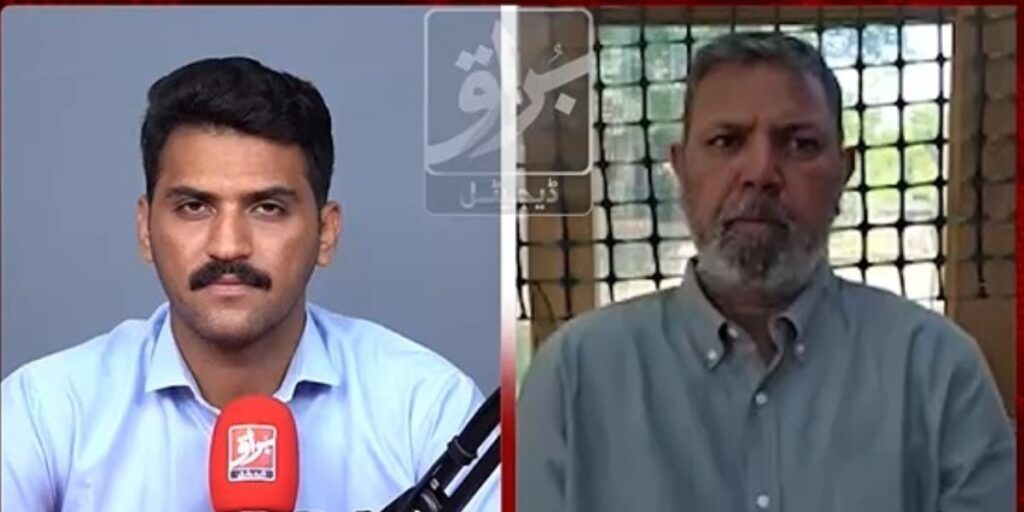Islamabad – Analyst Ashir Azeem, in an interview with Buraq Digital, stated that Hindutva inherently operates on a deeply rooted caste and class system.
He emphasized that within Hindutva, certain groups view themselves as racially and spiritually superior, considering others impure and unworthy.
This includes systems like untouchability. Similarly, in Israel, Jews are made to believe they are the “chosen people,” superior to others, which explains why Israel has little regard for global justice and equality.
Every action taken by the Israeli state is based on the belief in its own supremacy.
He further stated that when it comes to aggression and issuing threats, India must remember that although the opposing country may have a struggling economy, be smaller, and have fewer weapons, it is still a nuclear-armed nation.
India cannot afford to ignore the consequences of its actions. In the latest episode of tension, no country—including the US and Western nations—was willing to listen to India’s terrorism narrative.
Instead, all global powers emphasized the urgency of de-escalation, recognizing the threat of nuclear conflict.
Ashir Azeem noted that BRICS is emerging as a strong and promising financial bloc—not only for today but also for the future.
It is set to become a powerful alternative to institutions like the IMF and World Bank, covering about 45% of the world’s population.
It is a reliable forum for sectors like energy and food.
He explained that India is unwilling to let Pakistan become part of BRICS, but eventually, with support from countries like China and Russia, Pakistan may find its place in this alliance. However, Pakistan must also make efforts to improve its internal systems.
He added that being part of a major financial group is one thing, but meeting its standards is another.
Pakistan needs to evaluate if its policing and judicial systems are strong enough. He said that for two decades, he has been raising concerns about weak institutions. For example, if a landlord cannot evict a tenant who refuses to pay rent, and civil court cases drag on for decades, how can foreign investors trust the system?
Economic progress demands legal and contractual certainty, and Pakistan must carry out deep reforms in its governance and economic institutions.
Ashir also appreciated how Pakistan handled the recent tensions with India, stating that Pakistan acted wisely and presented solid evidence of Indian involvement in terrorism—like the capture of Kulbhushan Jadhav.
India failed to present any concrete proof to support its claims and ended up isolated in the international community.
However, he emphasized that even with evidence, war is not the solution; the world will always encourage diplomatic de-escalation.
He noted that the world is now beginning to see India as a sponsor of terrorism due to its activities not just in Pakistan, but also in countries like the US and Canada.
Concluding his remarks, Ashir said that Indian Prime Minister Narendra Modi is a religious extremist who will continue his aggressive path.
He said Modi, who was abandoned by his own family, lacks empathy and is known globally for promoting hatred and bigotry.
Ashir warned that Modi is likely to pursue aggression again.
ALSO READ: Balochistan is a global chessboard now: Abdullah
In contrast, Pakistan’s defense budget is limited, and thus, it must continue to rely on its strong strategic relationship with China—a partnership that has been consistent since the F-6 fighter jet era and led to the joint development of the JF-17 Thunder. Strengthening this alliance is essential for Pakistan’s future.





